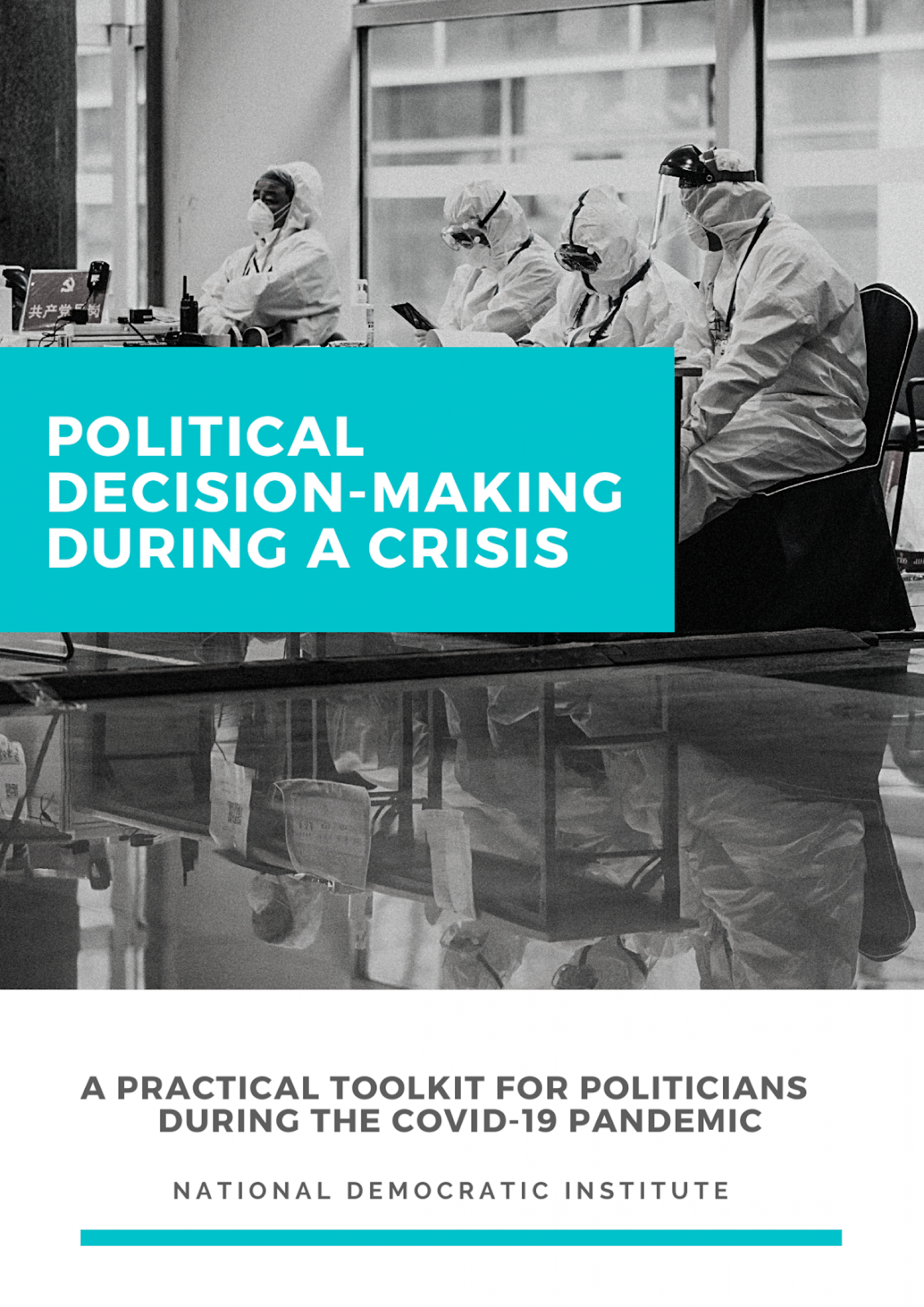
SHARE
ISSUES
The COVID-19 crisis presents new, unique challenges to politicians. Along with the serious consequences of the disease, public health measures -- such as social distancing and emergency lockdowns -- are limiting the traditional methods for conducting politics . Government officials and political party leaders alike are expanding their efforts toward effective public communication, legislative advocacy, financial oversight, and more. At the same time, many governments are expanding their powers to an unprecedented degree. They must be carefully scrutinized to prevent democracy from becoming the next casualty of COVID-19.
NDI is working with political leaders and civil society around the world to help them navigate the realities of governance during COVID19, providing resources to support accountability and transparency. To do so, NDI has created four new guides:
-
The Politicians’ Crisis Response Kit is a toolkit containing straightforward crisis-response advice for politicians. The toolkit is structured by providing a list of tips and potential response options for issues ranging from E-democracy to communication resources to common mistakes to avoid.
-
The Crisis Communications Guide expands on the Response Kit, focusing on politicians’ responsibility to effectively disseminate critical information to the public during periods of crisis. This short guide outlines the “Ten Rules of Crisis Communication,” an easy-to-follow checklist for connecting with constituents.
-
What to Do During a Pandemic is a self-explanatory short guide specifically tailored to the COVID-19 pandemic with differing advice for different types of politicians. While all public leaders must work together during a pandemic, political party leaders, members of parliament, local representatives, and governing/opposition parties all have different roles to play.
-
Political Decision-Making During a Crisis is a practical framework for building an effective crisis response team. Political decision-making should be a collaborative process informed by the most qualified experts possible. This document outlines the necessary roles and responsibilities of a response team, from the chair to the subject matter experts.
NDI’s partners are already putting these guides into practice, with positive results.. Government and party leaders around the world have already begun using the guides to craft their COVID-19 responses. For example, in Iraq, NDI has created a “menu” of trainings based on the guides for members of parliament in the Council of Representatives and the Kurdish Parliament of Iraq. NDI also hosted forums with Iraqi political parties on the economic impacts of the crisis, using the guides to develop policy recommendations such as creating emergency funds to support day laborers and adding disease prevention materials to education curricula. In Myanmar, What to Do During a Pandemic was translated into Burmese and used to organize a new virtual workshop for ten political parties on responsibility and leadership during a crisis. In Jordan and Libya, the guides have been distributed to members of parliament and the Libyan House of Representatives. Additionally, NDI offices in Tunisia and Iraq are developing visual aides to complement the guides, and NDI is expanding our Arabic-language political skills website Taalam Sharek to help activists, parties, and governments improve their pandemic response.
Every guide is available in English and Arabic, and NDI will soon release French translations for our partners in West Africa.
The COVID-19 crisis is forcing all citizens to make serious adjustments to their lives, but politicians need to take a greater share of the burden. By properly crafting a successful pandemic response, political leaders can save lives and build public trust in effective democratic governance.


